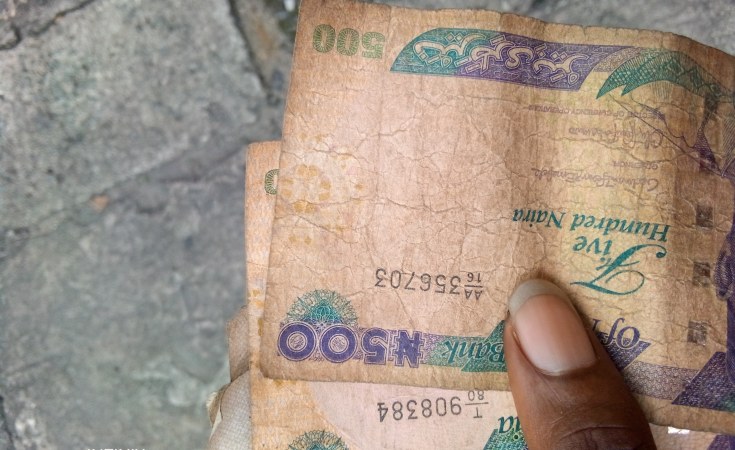A seven-member panel of the Supreme Court led by John Okoro unanimously directed that the CBN must continue to receive the old notes from Nigerians.
The Supreme Court has extended the validity of the N200, N500, and N1,000 Naira notes till 31 December.
A seven-member panel of the court led by John Okoro unanimously directed that the CBN must continue to receive the old notes from Nigerians
The court held that the directive of President Muhammadu Buhari for the redesign of the new notes and withdrawal of the old notes without due consultation is invalid.
Emmanuel Agim, a member of the panel, who read the lead judgement, also condemned the President's disobedience of the court's 8 February order that the old N200, N500, and N1,000 notes should continue to circulate alongside the new ones.
He said the president's broadcast of 16 February that only N200 notes should remain legal tender made Nigeria's democracy look like a mere pretension while democracy is replaced with autocracy.
"It is not in doubt that the President refused to comply with the order of the court that the old 200, 500, and 1,000 naira notes should continue to be legal tender," the court said.
"Interestingly, there is even nothing to show that that the President's directive for the release of N200 notes was implemented.
"I agree that the first defendant ought not to be heard when the president has refused to obey the authority of this court.
"Disobedience of order of court shows the country' democracy a mere pretension and now repalced by autocracy. This suit is meritorious."
The controversial monetary policy that was challenged at the Supreme Court had last year introduced newly redesigned 200, N500, and N1,000 notes with tight deadline to mop up the old notes from circulation.
The policy has led to scarcity of currency notes, bringing untold hardship to millions of citizens in an economy significantly driven by the informal sector with a large proportion of unbanked persons.
A 31January deadline intially set for ending the legal tender status of the old Naira notes was extended to 10 February as the supply of the new notes fell far short of the volume needed by citizens to meet their most basic needs across the country.
On 3 February, three stat governments - Kaduna, Kogi, and Zamfara - citing the hardships the continued scarcity of naira notes brought to their people - sued the federal government at the Supreme Court for a reversal of the policy.
Five days later, the court issued an interim order suspending the implementation of the deadline set by the federal government, and directed that the old and new Naira notes should continue to circulate pending the resolution of the case.
Unmoved by the court's order, the CBN insisted that the old notes had stopped being legal tender after the 8 February deadline while the scarcity of the new notes persisted.
In defiance of the Supreme Court's order, Mr Buhari, on 16 February, restored the validity of the old N200 notes, insisting that the N500 and N1000 notes had ceased to be legal tender.
At the resumed hearing of the suit on 22 February, the number of plaintiffs rose to 16 after six new states joined the three initial plaintiffs.
The 16 states that became plaintiffs in the Naira redesign suit include: the original plaintiffs - Kaduna, Kogi, Zamfara - and the seven that were joined on 15 February - Cross River, Sokoto, Lagos, Ogun, Katsina, Ondo and Ekiti states.
The rest are the six others that were joined on Wednesday - Nasarawa, Niger, Kano, Jigawa, Rivers and Abia states.
Rivers and Abia states had filed separate suits that were consolidated with the main one.
Before then, two states - Edo and Bayelsa - joined the side of the federal government to oppose the suit.
Follow our LIVE UPDATES HERE.
More details later.


